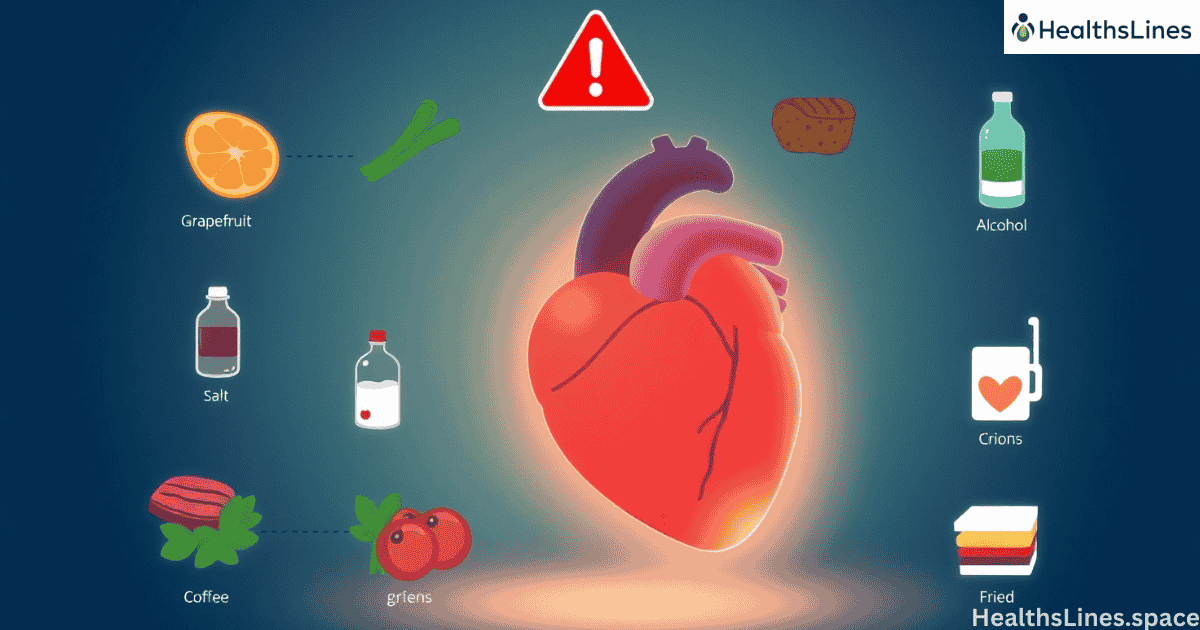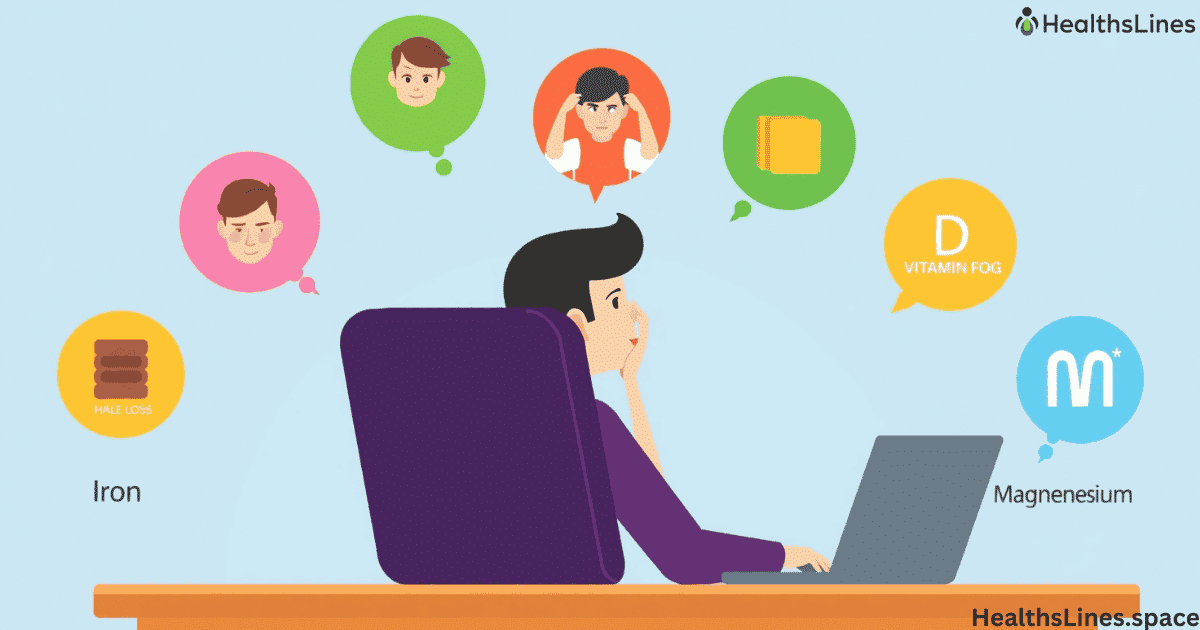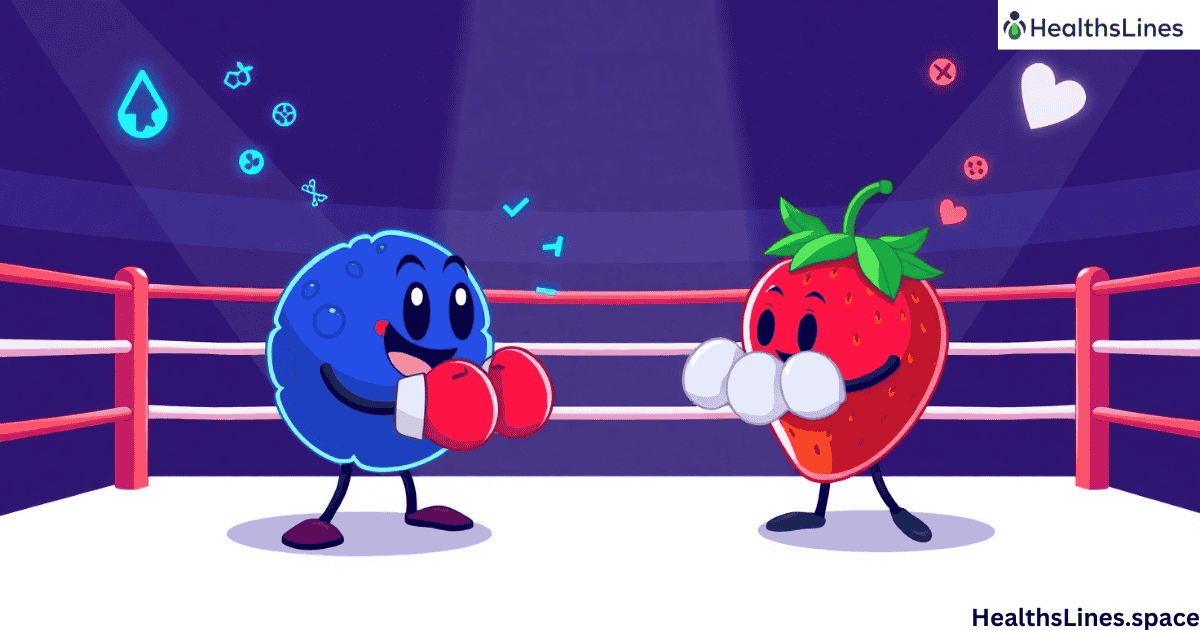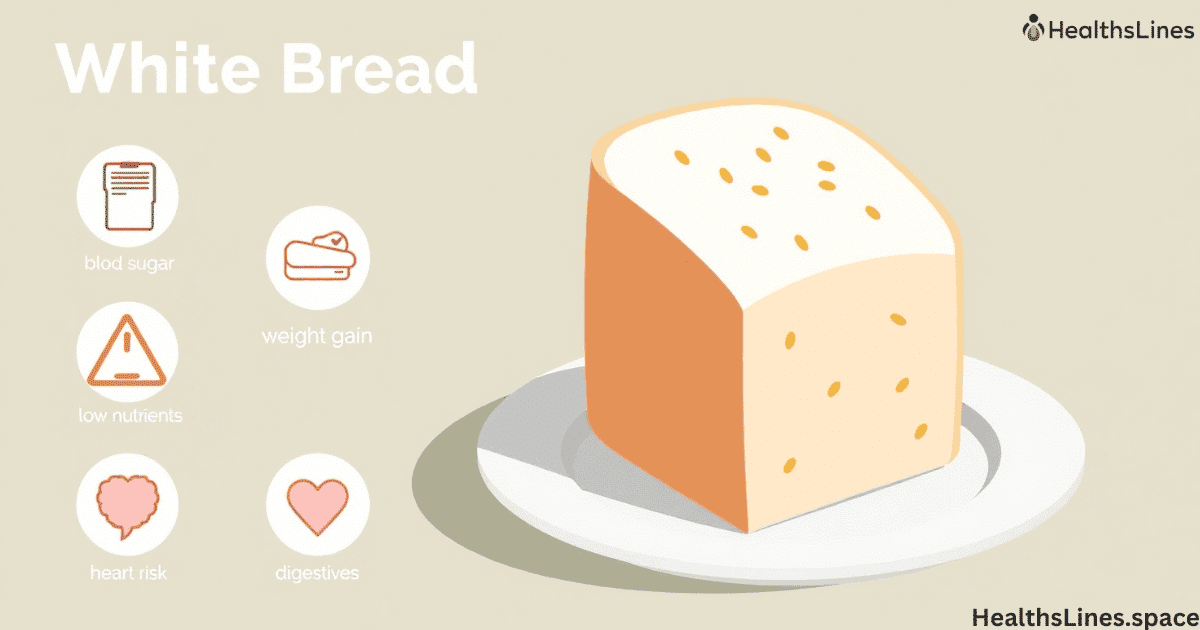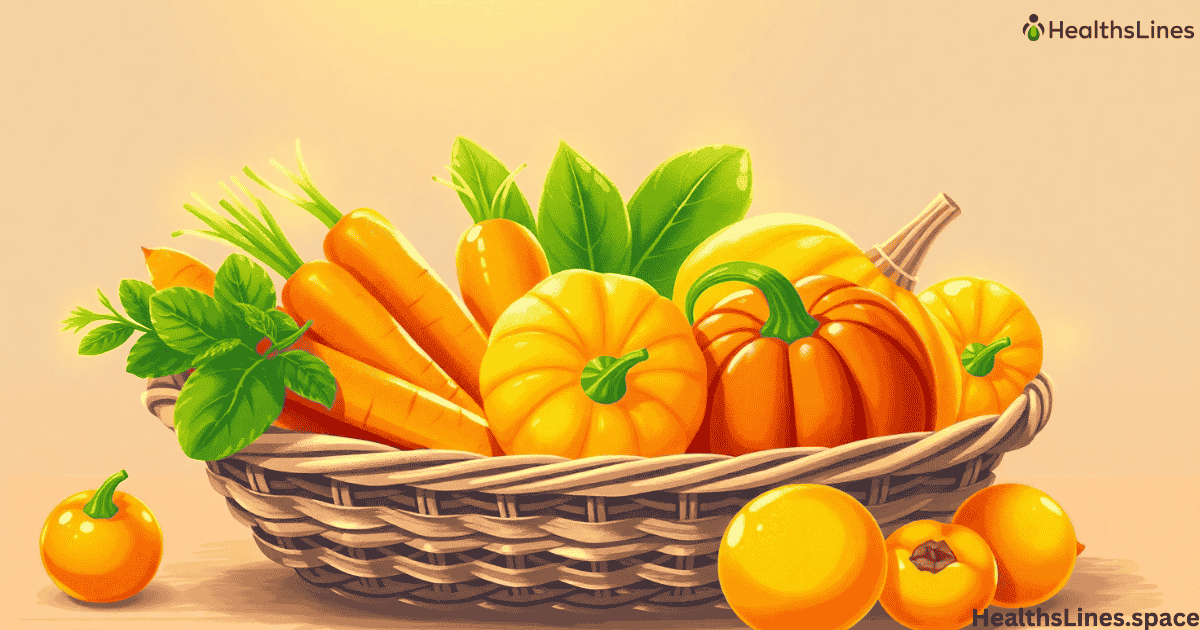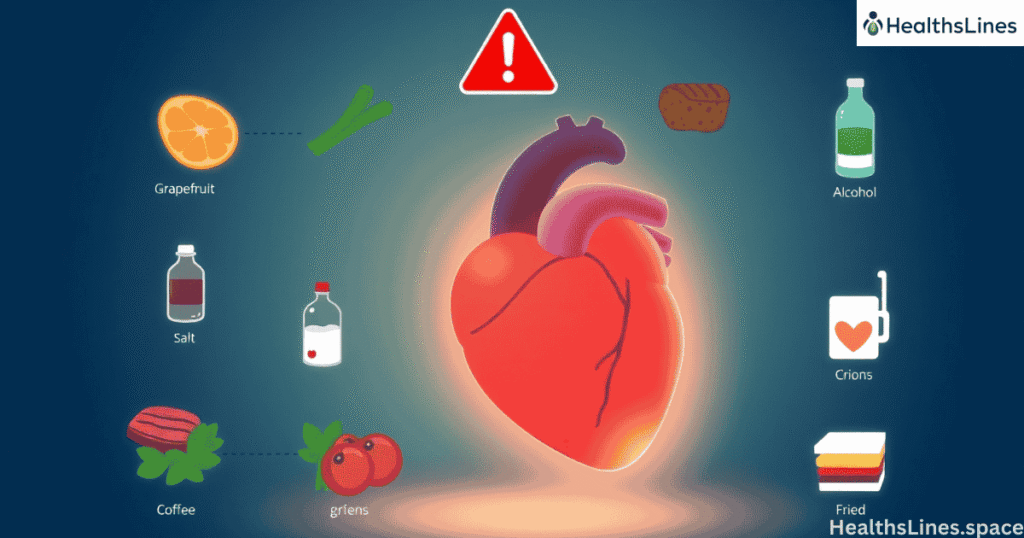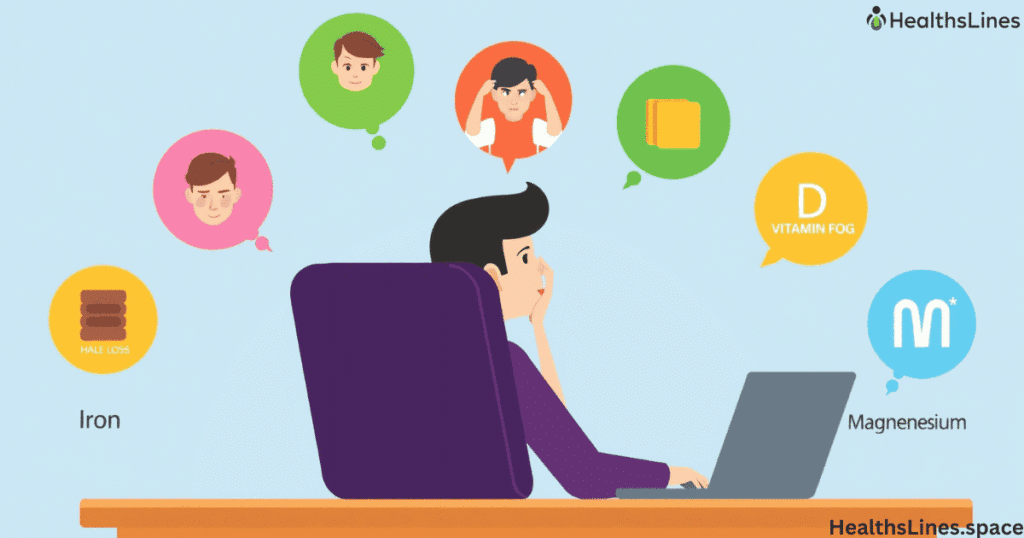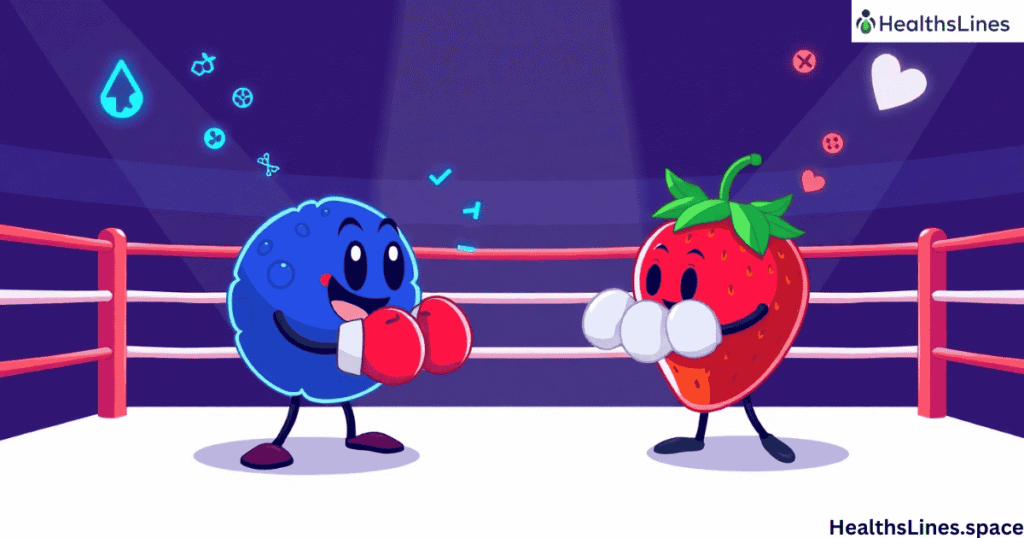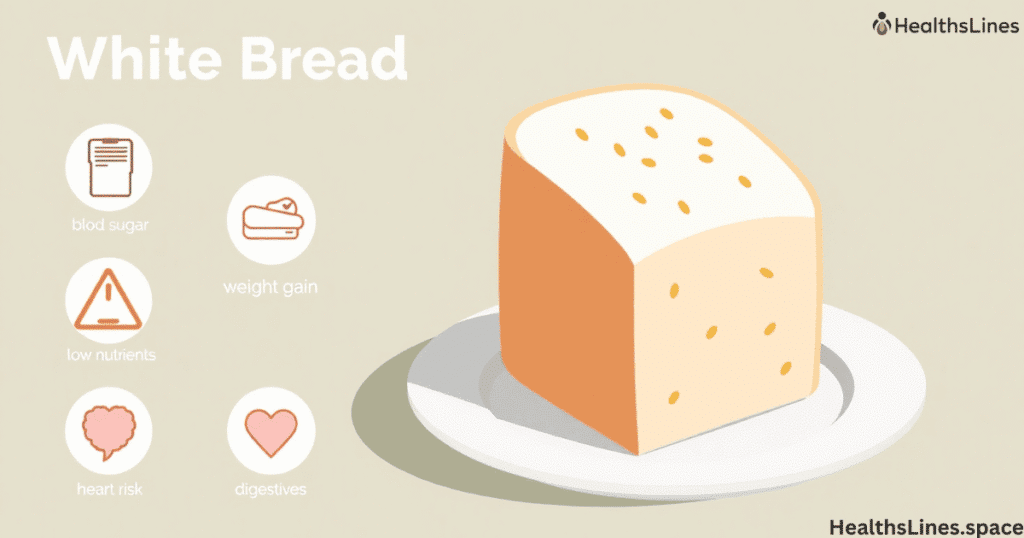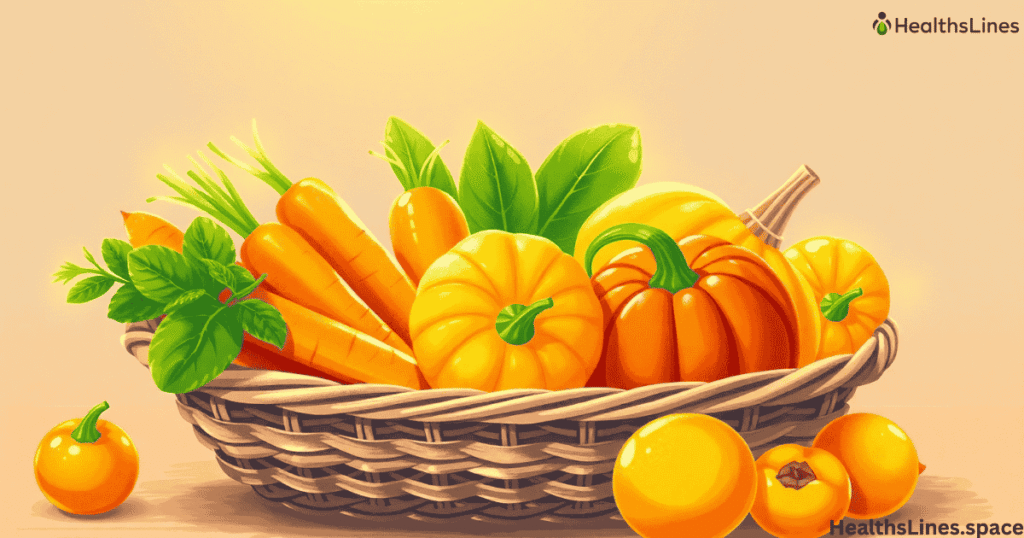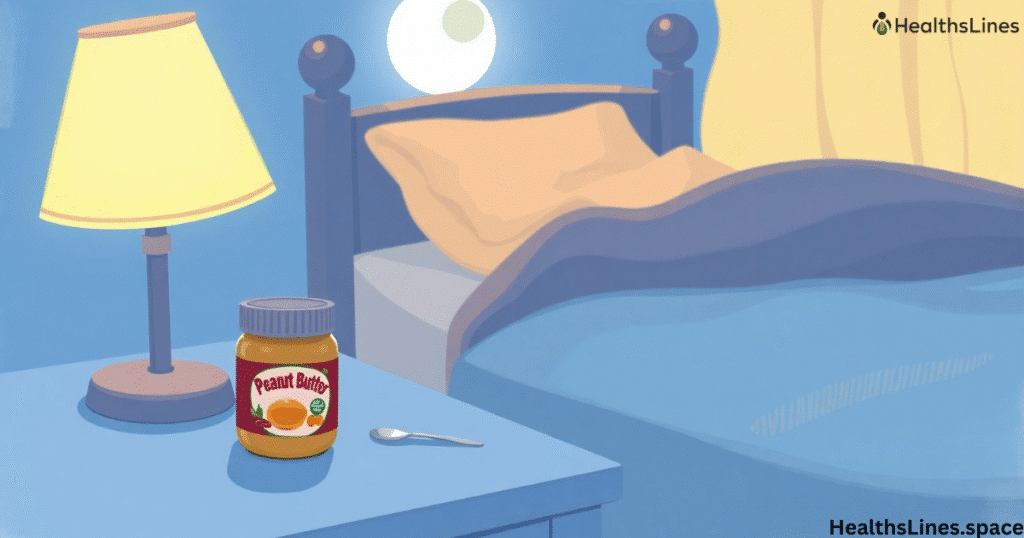If you take heart medications, your diet matters more than you think. Some foods can make your medicine less effective. Others can cause harmful side effects. Knowing what foods to avoid when taking heart medications can keep you safe and healthy.
Even healthy foods like fruits or vegetables can cause problems. This is because heart medications and food interactions can change how your drugs work in your body. Eating the wrong foods can raise your blood pressure, affect your cholesterol, or even increase bleeding risk if you take blood thinners. Following a healthy diet for heart patients helps you get the most benefit from your medication while keeping your heart strong.
Grapefruit and Its Juice
Grapefruit is a tasty fruit, but it can be dangerous with some heart medications. Grapefruit blocks enzymes in the liver that break down drugs. This can make your medicine build up in your body. For example, grapefruit and statins is a common problem. Too much statin can cause muscle pain, liver damage, or kidney issues.
Even a small amount of grapefruit juice can affect your medication. If you take statins or calcium channel blockers, it’s safer to avoid grapefruit completely. You can eat apples, oranges, or berries instead. This helps prevent heart drug interactions and keeps your medicine working properly.
High-Potassium Foods
Many people think potassium is always good for the heart. And it is—when balanced. But if you are taking certain heart medications, too much potassium can become risky. Medicines like ACE inhibitors and potassium-sparing diuretics help your body keep potassium. Eating high-potassium foods at the same time can lead to hyperkalemia risk with ACE inhibitors, which means your potassium levels can rise too high. This can cause irregular heartbeat, muscle weakness, or even serious heart rhythm problems.
Common high-potassium foods include bananas, avocados, sweet potatoes, spinach, and tomatoes. You may wonder, can you eat bananas while on heart medication? The answer depends on your medication and your doctor’s advice. Even seemingly healthy foods can have unexpected effects on your heart medications and food interactions.
The key is moderation. You don’t have to cut potassium completely. Instead, balance your intake and monitor your levels with your doctor. Small portions throughout the week are usually safe. Avoid sudden spikes in potassium, and be aware of processed foods that may also contain hidden potassium. Understanding foods high in potassium and heart medicine interactions helps you stay safe while still enjoying a healthy diet. Your goal is a safe diet with heart medication, which supports your heart and allows your medicine to work effectively.
Leafy Greens Rich in Vitamin K
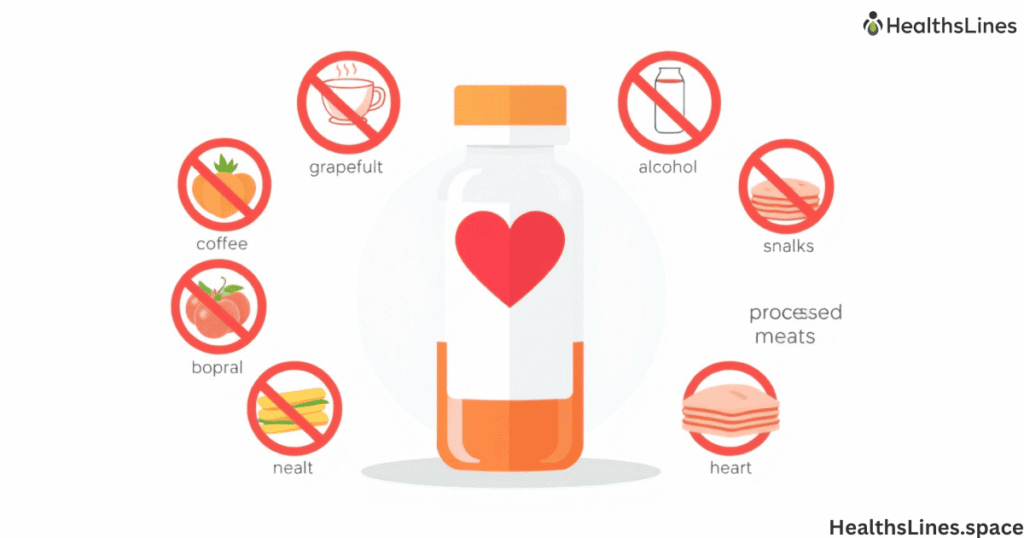
Leafy greens like spinach, kale, and broccoli are healthy, but they affect blood thinners. Vitamin K and blood thinners can cause problems because vitamin K lowers the effect of warfarin. This is one type of warfarin food interactions.
You do not need to avoid these vegetables completely. Eating a consistent amount every day is safer. This way, your medicine works correctly. Learning about vitamin K foods and warfarin management helps prevent dangerous bleeding or clotting.
High-Sodium Foods
Sodium is in many foods and can raise your blood pressure. If you take blood pressure medicine, too much salt makes it less effective. Sodium and blood pressure medication can clash. Common high-salt foods are canned soups, processed meats, salty snacks, and sauces like soy sauce.
Even small amounts of extra salt can affect diet and heart medications. Reducing salt slowly helps your medicine work better. Using low-sodium products or herbs for flavor keeps food tasty and safe for your heart.
Alcohol
Alcohol can be risky if you take heart medications. Drinking while on beta blockers, statins, or blood thinners can cause dizziness, liver problems, or irregular heartbeat. These are examples of alcohol and heart drugs interactions.
Even moderate drinking can affect blood thinner food interactions or cause other heart drug interactions. Limiting alcohol or avoiding it completely is safest. Your doctor can give advice on what is safe for your medication plan.
Garlic and Herbal Supplements
Garlic is often celebrated for heart health, but it can be risky if you are taking certain heart medications. High doses of garlic, especially in supplement form, can interfere with blood thinner food interactions. Medicines like warfarin or aspirin rely on careful blood clotting, and garlic supplements can make your blood too thin. This increases the risk of bleeding and bruising, which can be dangerous if not monitored properly.
Even though fresh garlic in cooking is usually safe, concentrated pills or extracts are different. They can amplify drug-food interactions for heart disease and reduce the effectiveness of your medication. Other herbal supplements, like ginkgo or ginseng, can also interact with your heart drugs, affecting how well they work.
It’s important to talk with your doctor before using any herbal products while on medication. They can help you decide what is safe and in what amounts. Understanding foods that interact with heart medicine isn’t just about what you eat; it’s also about what supplements you take. Using garlic and herbs carefully allows you to enjoy their benefits without risking your treatment. Following a safe diet with heart medication means being mindful of both foods and supplements to protect your heart and ensure your medicine works as intended.
Black Licorice
Black licorice is sweet, but it contains glycyrrhizin. This can change potassium levels and blood pressure. When combined with heart medications, it may cause irregular heartbeat or high blood pressure. This is an example of black licorice and medication risks.
Even small amounts of black licorice can affect foods to avoid with heart medications. Candy lovers should choose safer options to avoid dangerous heart drug interactions.
Processed and Fatty Meats
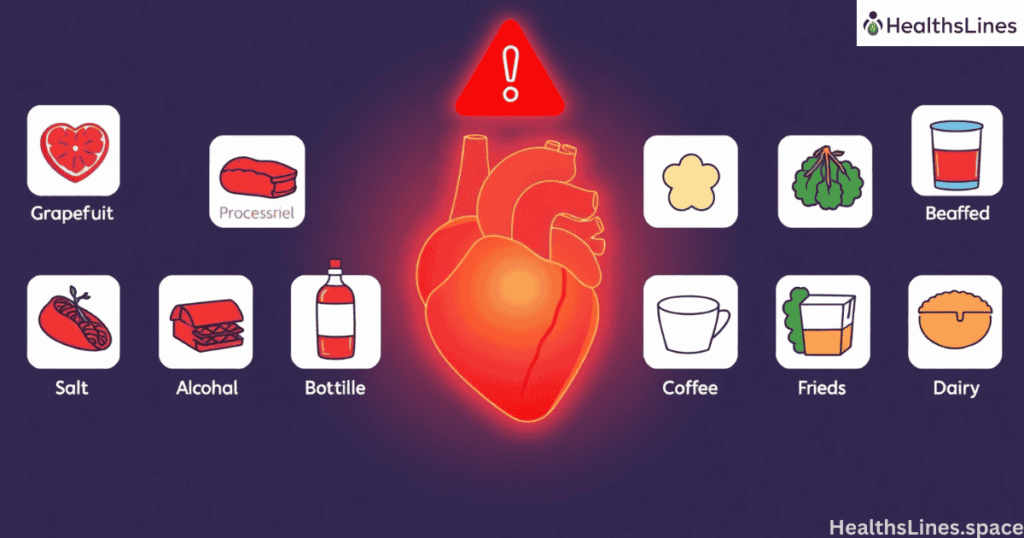
Processed meats like bacon, hot dogs, and sausages are high in fat and salt. If you take statins or other cholesterol drugs, these foods can reduce the medicine’s effectiveness. Processed meats and cholesterol drugs increase cholesterol and heart disease risk.
Lean proteins like fish, chicken, or beans are better alternatives. Eating these helps your body benefit from cholesterol and diet interactions while keeping your heart healthy. Avoiding processed meats makes your diet and heart medications work together.
Sugary Foods and Drinks
Sugary foods and drinks can harm your heart even if you take heart medications. Many people think sugar only affects weight, but it can also interfere with heart medications and food interactions. Eating too much sugar can raise blood pressure, increase triglycerides, and make cholesterol harder to control. This can reduce the effectiveness of your medicine, making cholesterol and diet interactions worse.
Sweets, candies, soda, and baked treats are the main culprits. Even fruit juices with added sugar can be risky. People often overlook them, but these hidden sugars can affect your diet and heart medications. High sugar intake may also contribute to weight gain, which puts extra stress on your heart and may force your medicine to work harder.
The good news is you don’t have to give up all sweetness. Choosing fresh fruit, unsweetened yogurt, or naturally flavored water can satisfy your cravings without harming your heart. Reducing sugary snacks gradually is better than cutting them abruptly, and it helps your body adjust. Understanding foods that interact with heart medicine means recognizing that sugar, while tasty, can interfere with your treatment. Following a safe diet with heart medication keeps your heart healthy and ensures your medicines work effectively, so you can enjoy life without unnecessary risks.
What This Means For You
Avoiding risky foods does not mean giving up taste. Knowing foods that affect cholesterol medication, foods that raise blood pressure, and foods that make blood pressure medicine less effective helps you eat wisely. Your doctor or dietitian can guide you in creating a safe diet with heart medication.
Some foods, like leafy greens or potassium-rich fruits, are okay if eaten in measured amounts. Others, like grapefruit or black licorice, should be avoided. Tracking your meals helps prevent heart medications and food interactions. A mindful diet supports your heart and medicine, keeping you safe and healthy.
Table: Common Heart Medication Food Interactions
| Food | Medications Affected | Risks | Safer Alternatives |
| Grapefruit | Statins, Calcium Channel Blockers | High drug levels, side effects | Apples, oranges, berries |
| Leafy Greens | Warfarin | Reduces drug effectiveness | Consistent daily intake |
| High Potassium | ACE Inhibitors, Potassium-sparing diuretics | Hyperkalemia | Controlled portions of fruit & vegetables |
| High Sodium | Blood Pressure Medications | Reduced effectiveness, high BP | Low-sodium versions |
| Alcohol | Beta Blockers, Statins, Blood Thinners | Dizziness, liver issues | Limit or avoid |
| Garlic Supplements | Blood Thinners | Bleeding risk | Use fresh garlic in moderation |
| Black Licorice | Various Heart Medications | Irregular heartbeat, high BP | Licorice-free candy |
| Processed Meats | Statins | High cholesterol | Lean proteins |
| Sugary Foods | Cholesterol and BP meds | Weight gain, triglycerides | Fruits, low-sugar snacks |
Conclusion
Knowing foods to avoid with heart medications keeps your heart and body safe. Heart medications and food interactions can cause serious problems if ignored. Avoid grapefruit, high-potassium foods, leafy greens, high sodium, alcohol, garlic supplements, black licorice, processed meats, and sugary foods.
A safe diet with heart medication is possible. Be consistent, check portions, and follow your doctor’s advice. Your diet can make your medications work better, protect your heart, and improve overall health.
